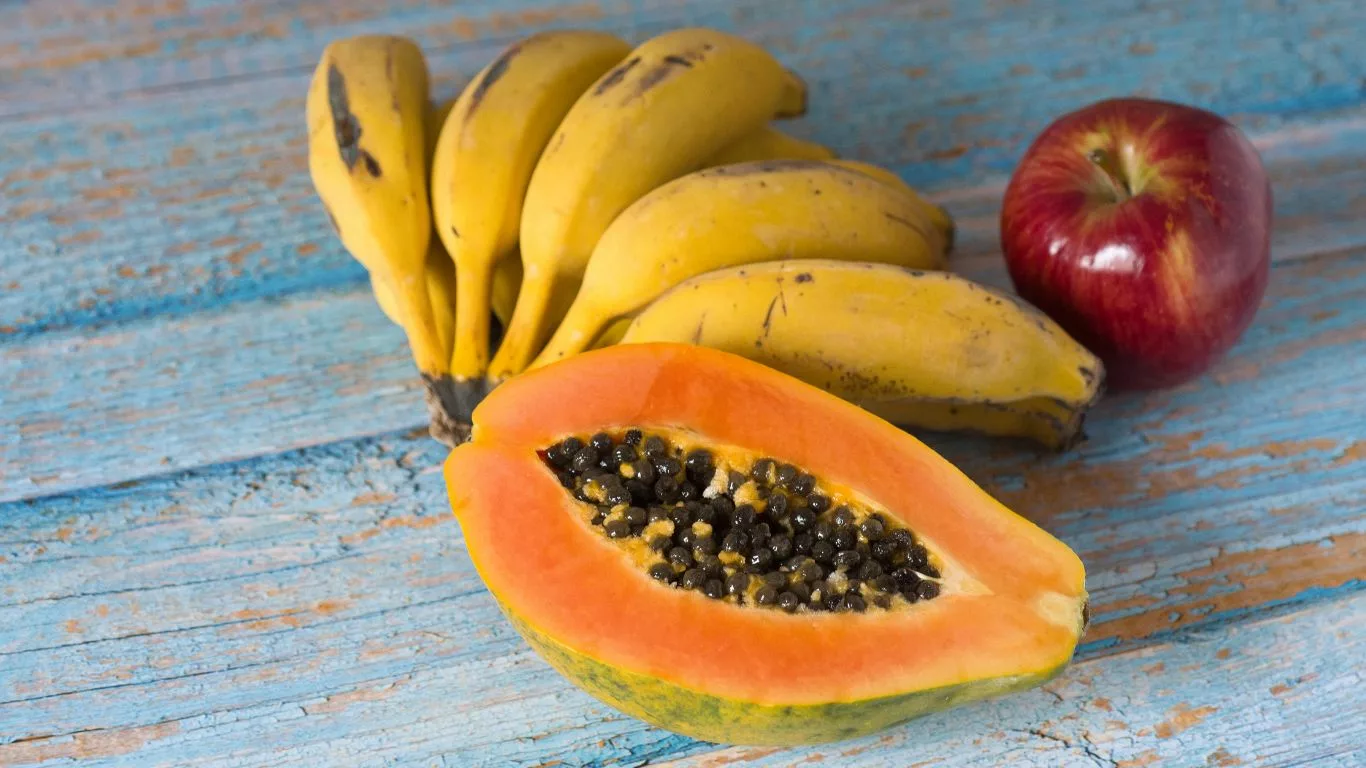What Fruits are Good for Acid Reflux: Expert Tips
Discover the best fruits to soothe acid reflux symptoms. Learn about low-acidity options like bananas, melons, apples, pears, and papaya for effective relief.
Introduction
Acid reflux, also known as heartburn, is a common digestive condition that causes a burning sensation in the chest and throat. It occurs when stomach acid flows back into the esophagus, irritating the lining. While various factors can contribute to acid reflux, including lifestyle and medical conditions, diet plays a crucial role in managing its symptoms. In this article, we will explore the impact of fruits on acid reflux and discover which fruits are beneficial for individuals dealing with this condition.
Understanding Acid Reflux
Before diving into the world of fruits that are beneficial for acid reflux, it’s essential to have a basic understanding of the condition. Acid reflux occurs when the lower esophageal sphincter (LES) weakens or relaxes inappropriately, allowing stomach acid to rise back up into the esophagus. The resulting irritation can lead to discomfort, pain, and a burning sensation in the chest, commonly referred to as heartburn.
Factors that can contribute to acid reflux include a hiatal hernia, obesity, pregnancy, certain medications, smoking, and consuming trigger foods and beverages. Understanding these factors can help individuals manage their acid reflux symptoms more effectively.
Impact of Diet on Acid Reflux
Diet plays a significant role in managing acid reflux symptoms. Certain foods can trigger or worsen heartburn, while others can help alleviate it. Among these dietary factors, the choice of fruits can have a substantial impact on acid reflux.
In addition to choosing the right fruits, individuals with acid reflux should adopt an overall healthy eating pattern. This includes consuming a variety of nutrient-rich foods, eating smaller meals, avoiding late-night snacking, and staying hydrated with water.
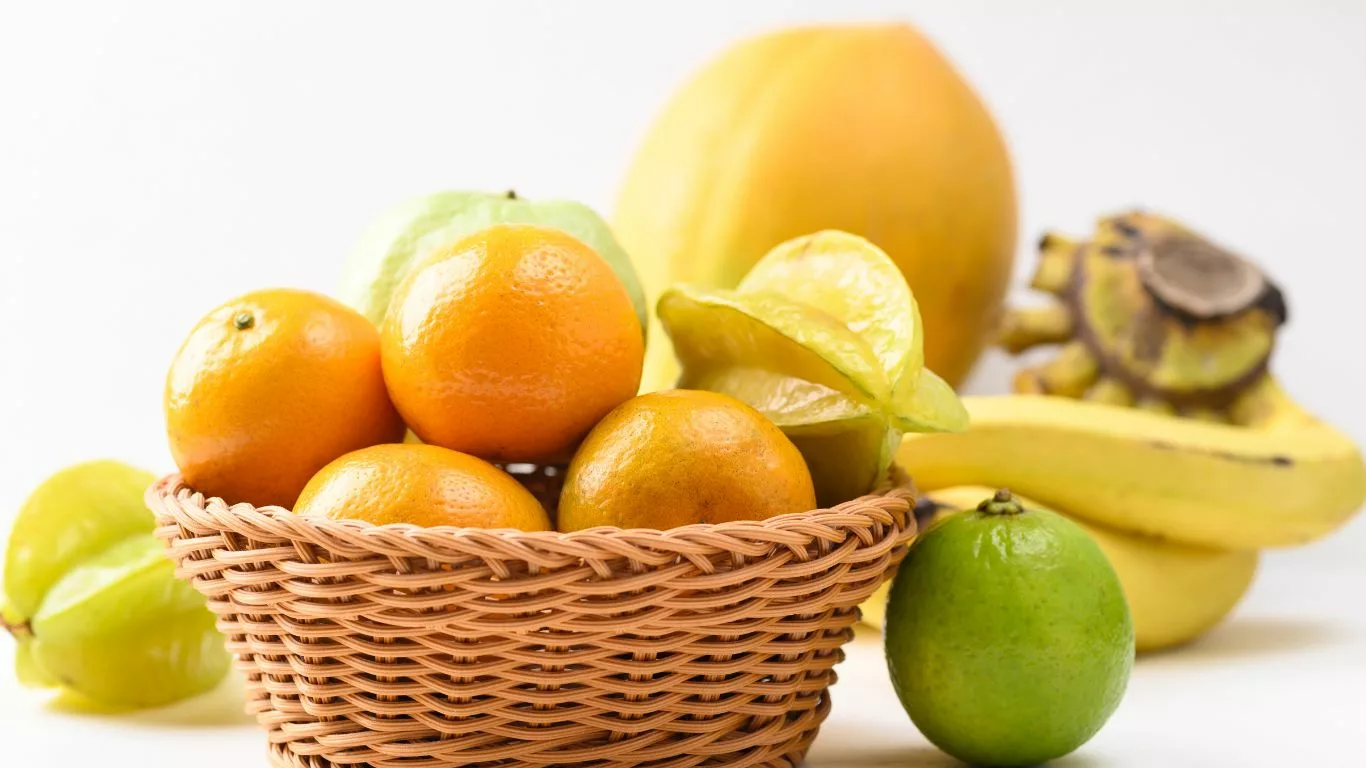
Acid Reflux and Fruits
Fruits are an essential part of a balanced diet, but when it comes to acid reflux, not all fruits are created equal. Some fruits have high acidity levels, which can aggravate heartburn symptoms, while others are naturally low in acidity and can be beneficial for individuals dealing with acid reflux.
It’s important to note that acid reflux triggers can vary from person to person. While certain fruits may be well-tolerated by one individual, they may cause discomfort in another. Therefore, it’s essential for individuals to pay attention to their body’s response to different fruits and make dietary choices accordingly.
Acidic Fruits to Avoid
Individuals with acid reflux should avoid or limit the intake of highly acidic fruits. These fruits can increase stomach acidity and trigger heartburn. Some examples of acidic fruits to avoid include:
- Oranges
- Grapefruits
- Lemons
- Tomatoes
While citrus fruits are rich in vitamin C and antioxidants, their high acidity content can be problematic for those with acid reflux. The citric acid in these fruits can relax the LES, leading to acid reflux symptoms. Additionally, tomatoes contain citric acid and are highly acidic, making them potential triggers for heartburn.
Best Fruits for Acid Reflux
Luckily, there are plenty of delicious and nutritious fruits that can help manage acid reflux symptoms. The following fruits are known for their low acidity and potential to soothe the digestive system:
- Bananas: Rich in fiber and essential nutrients, bananas are a fantastic option for acid reflux sufferers. They help neutralize stomach acid and reduce irritation. Additionally, bananas contain a natural antacid effect that can provide quick relief from heartburn.
- Melons (Cantaloupe, Honeydew): Melons have a high water content, which helps dilute stomach acid and promote proper digestion. They are low in acidity and gentle on the esophagus. The melon’s natural sweetness also makes it a satisfying and refreshing treat for acid reflux individuals.
- Apples: Apples are a great source of dietary fiber, which aids digestion and promotes bowel regularity. Be sure to choose ripe, sweet apples as they are less acidic. The soluble fiber in apples, known as pectin, can also help absorb excess stomach acid and alleviate heartburn symptoms.
- Pears: Pears are rich in vitamins and minerals and have a soothing effect on the digestive system. Opt for ripe pears for a less acidic option. The fiber in pears can aid digestion and prevent constipation, which can contribute to acid reflux.
- Papaya: Papaya contains enzymes like papain, which aids in digestion and reduces inflammation in the digestive tract. It is a helpful fruit for managing acid reflux symptoms. Papaya is also rich in vitamins A, C, and E, which contribute to better digestive and immune health.
It’s worth noting that while these fruits are generally well-tolerated by individuals with acid reflux, portion control and personal tolerance levels should be considered when incorporating them into the diet.

Factors to Consider
When choosing fruits for acid reflux management, several factors come into play, including the pH levels of fruits, their fiber content, and the specific nutrients they offer.
pH Levels of Fruits
The pH level indicates the acidity or alkalinity of a substance, and it can vary among fruits. Lower pH levels indicate higher acidity, which can potentially trigger acid reflux symptoms. Therefore, individuals with acid reflux should aim for fruits with higher pH levels and lower acidity to reduce the risk of heartburn.
Some fruits with higher pH levels that are less acidic include bananas (pH 5.6), cantaloupe (pH 6.13), honeydew (pH 6.0), apples (pH 4.0-5.0), and pears (pH 5.5-7.0).
Fiber Content and Digestion
Fiber is crucial for maintaining digestive health. It promotes regular bowel movements and helps prevent constipation, which can worsen acid reflux symptoms. Fruits with higher fiber content are generally beneficial for acid reflux sufferers, as they support proper digestion and minimize the risk of acid backup.
Some fruits that are rich in fiber include bananas, apples, pears, and papaya. By consuming these fiber-rich fruits, individuals can experience improved digestion and reduced acid reflux symptoms.
Nutrient Benefits for Acid Reflux
Some fruits contain specific nutrients that can be especially helpful for managing acid reflux. These nutrients may include enzymes that aid digestion, vitamins that support the immune system and reduce inflammation, and minerals that promote overall gut health.
Papaya, for example, contains the enzyme papain, which assists in breaking down proteins and easing digestion. This enzyme can help reduce acid reflux symptoms by promoting a more efficient digestive process.
Furthermore, bananas are an excellent source of potassium, which can help regulate stomach acid levels and reduce the risk of heartburn. Additionally, apples and pears contain essential vitamins and minerals that contribute to better digestive health and overall well-being.
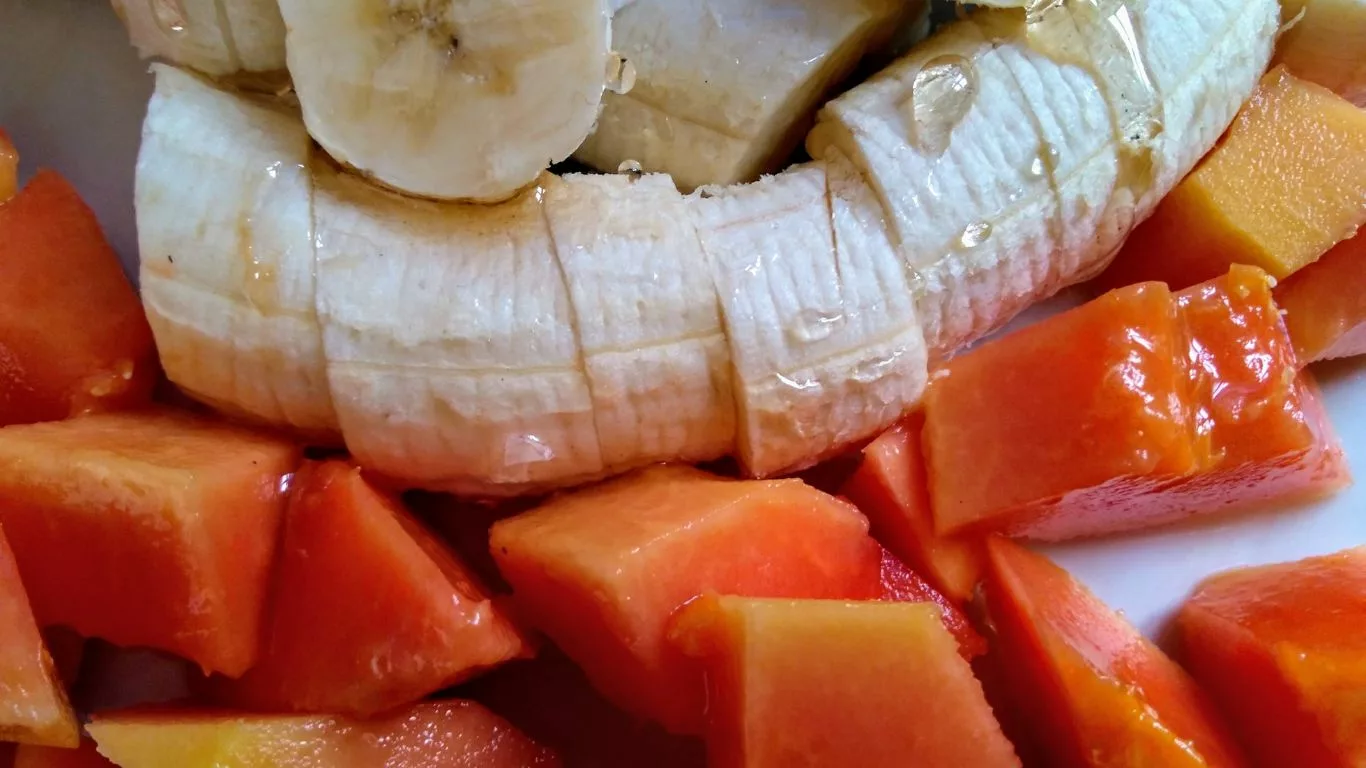
Recommended Fruits for Acid Reflux
Based on the factors mentioned above, certain fruits stand out as excellent choices for acid reflux management:
Bananas
Bananas have a pH level of around 5.6, making them a low-acidity fruit that is gentle on the esophagus. They are an excellent source of dietary fiber, which aids digestion and promotes a healthy gut. Additionally, bananas contain potassium, which helps regulate stomach acid levels and reduces the risk of heartburn.
For acid reflux relief, consider consuming a ripe banana on its own or adding it to smoothies and oatmeal. The natural sweetness and creamy texture make bananas a versatile and satisfying fruit choice.
Melons (Cantaloupe, Honeydew)
Both cantaloupe and honeydew melons have high water content, which helps neutralize stomach acid and promote proper digestion. They are refreshing, low in acidity, and provide essential vitamins and minerals for overall well-being.
To incorporate melons into your acid reflux-friendly diet, enjoy them as a standalone snack or add them to fruit salads and smoothies. The hydrating properties of melons make them an excellent option for staying refreshed while managing heartburn.
Apples
Apples are a rich source of fiber, particularly soluble fiber known as pectin. This type of fiber helps absorb excess stomach acid and soothes irritation in the esophagus. Opt for sweeter apple varieties like Gala or Fuji for a lower acidity level.
Snack on sliced apples with a dollop of almond butter for a satisfying and heartburn-friendly treat. Alternatively, incorporate apples into oatmeal, yogurt parfaits, or homemade apple sauce for added flavor and nutritional benefits.
Pears
Pears are gentle on the stomach and have a pH level that ranges from 5.5 to 7.0, making them less acidic compared to many other fruits. They are rich in dietary fiber and offer vitamins C and K, which contribute to better digestive health.
Enjoy ripe pears on their own or pair them with cheese for a delightful and acid reflux-friendly appetizer. You can also add sliced pears to salads or bake them with a sprinkle of cinnamon for a warm and comforting dessert option.
Papaya
Papaya contains the enzyme papain, which aids in breaking down proteins and facilitating digestion. This enzyme can help reduce acid reflux symptoms by promoting a more efficient digestive process. Additionally, papaya is a good source of vitamins A, C, and E, further supporting overall digestive and immune health.
For a delicious and soothing papaya treat, enjoy fresh papaya cubes on their own or blend them into a smoothie with other acid reflux-friendly fruits. Papaya can also be a fantastic addition to fruit salads and tropical-inspired dishes.
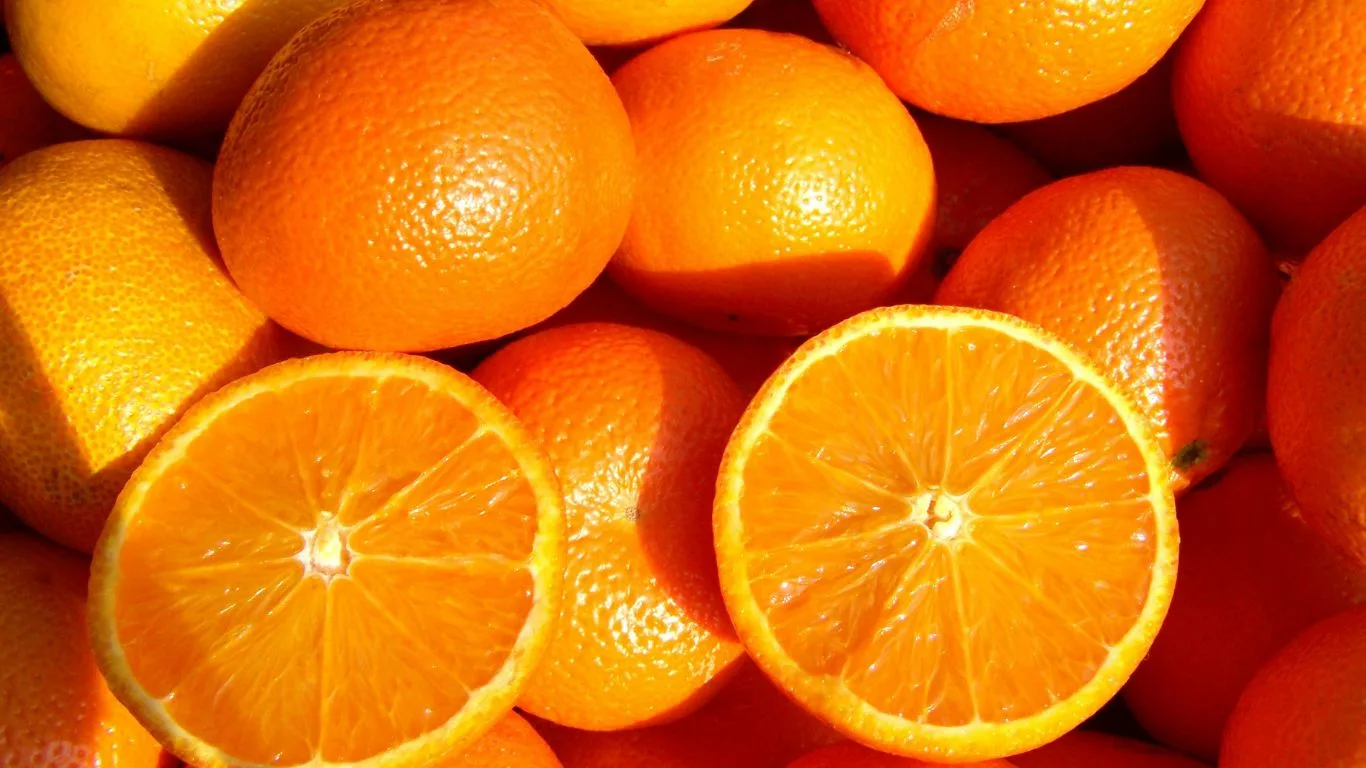
Fruits to Consume in Moderation
While some fruits are considered acid reflux-friendly, others fall into a category that should be consumed in moderation to avoid potential heartburn triggers:
Citrus Fruits (Oranges, Grapefruits)
Citrus fruits are highly acidic and can irritate the esophagus, leading to acid reflux symptoms. While they offer essential vitamins and antioxidants, individuals with acid reflux should be cautious when consuming citrus fruits and limit their intake.
If you enjoy citrus fruits and wish to include them in your diet, consider consuming small portions and pairing them with alkaline or low-acidic foods. Avoid consuming citrus fruits on an empty stomach, as this can increase the risk of heartburn.
Pineapple
Pineapple contains bromelain, an enzyme that can aid digestion. However, it is also acidic and may cause discomfort for some acid reflux sufferers. If you enjoy pineapple, try consuming it in moderation and paying attention to your body’s response.
To minimize the acidity of pineapple, consider grilling or baking it, as heat can help break down some of the enzymes responsible for its acidity. Additionally, combining pineapple with non-acidic fruits in a fruit salad can make it more tolerable for acid reflux individuals.
Berries (Strawberries, Blueberries, etc.)
Berries are nutritious and packed with antioxidants, but they can vary in acidity levels. While some acid reflux individuals may tolerate berries well, others may experience heartburn after consuming them. It’s best to consume berries in moderation and observe how your body reacts.
If you enjoy berries, consider opting for varieties that are less acidic, such as ripe strawberries, and pairing them with neutralizing foods like yogurt or almond milk. Additionally, including berries in small portions as part of a well-balanced meal can help minimize the risk of heartburn.
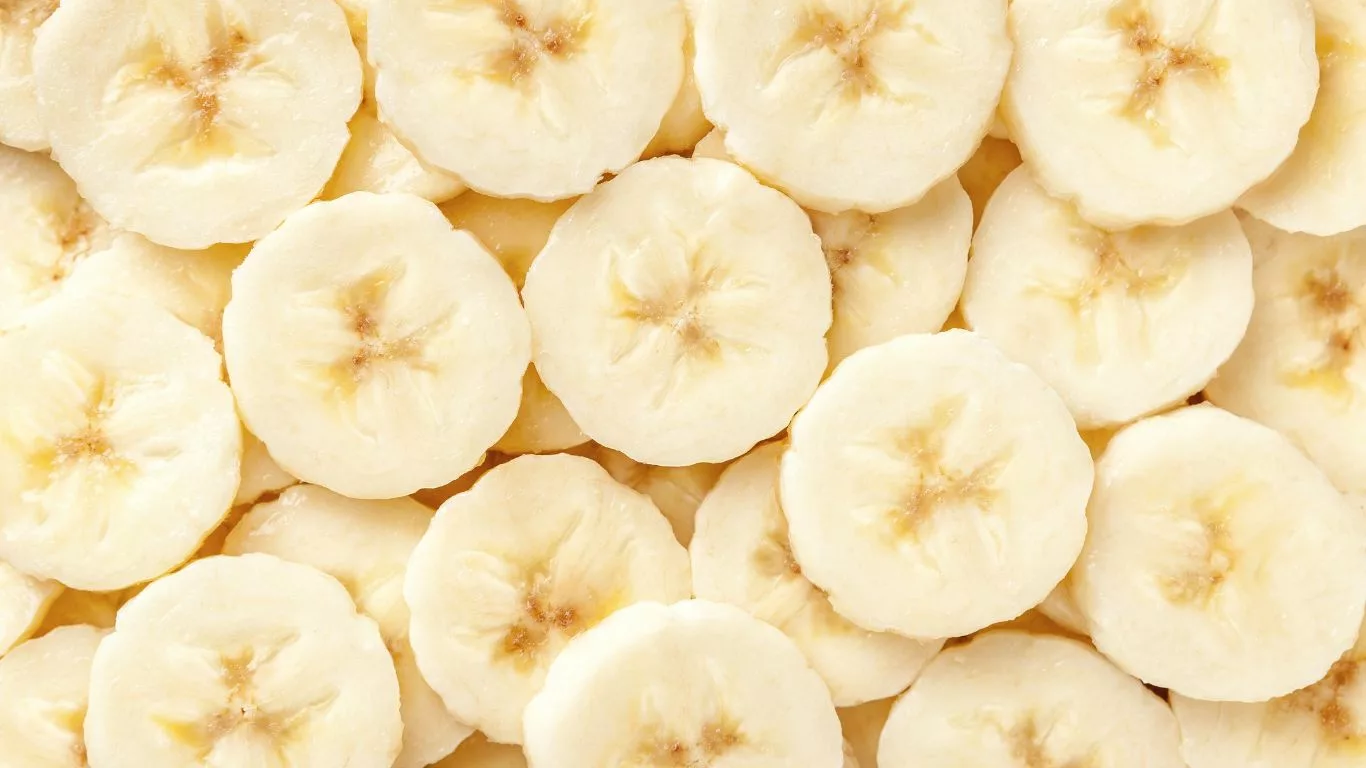
Preparing Fruits to Reduce Acid Reflux Risk
How you prepare and consume fruits can also influence their impact on acid reflux. Consider the following tips to reduce the risk of heartburn:
Opt for Ripe and Fresh Fruits
Ripe fruits tend to be less acidic and easier to digest than unripe ones. Choose fresh fruits that are in season for the best flavor and nutritional value. Avoid fruits that are overly ripe or under-ripe, as they may be more acidic and cause discomfort.
If you have trouble finding fresh fruits, consider frozen fruits without added sugars or preservatives as an alternative. Freezing fruits at their peak ripeness helps preserve their nutritional content and can make them a convenient option for acid reflux management.
Avoid Fruit Juices and Concentrates
Fruit juices and concentrates can be highly concentrated sources of sugar and acidity. They lack the fiber found in whole fruits, which can lead to a quicker spike in blood sugar levels and potentially aggravate acid reflux symptoms. Instead of juices, opt for whole fruits to benefit from their fiber content and slower sugar release.
If you enjoy fruit flavors in your beverages, try infusing water with slices of acid reflux-friendly fruits like cucumber, melon, or mint leaves. This refreshing alternative provides hydration without the added acidity.
Consider Low-Acid Smoothies
Smoothies can be a convenient and delicious way to enjoy fruits while managing acid reflux. To create a low-acid smoothie, use alkaline water or a non-acidic base like almond milk. Incorporate acid reflux-friendly fruits and vegetables and avoid acidic additives like citrus juices.
For a soothing and nutritious smoothie, try blending together ripe banana, ripe pear, a handful of spinach, and almond milk. The result is a creamy and nutritious beverage that won’t trigger acid reflux symptoms.
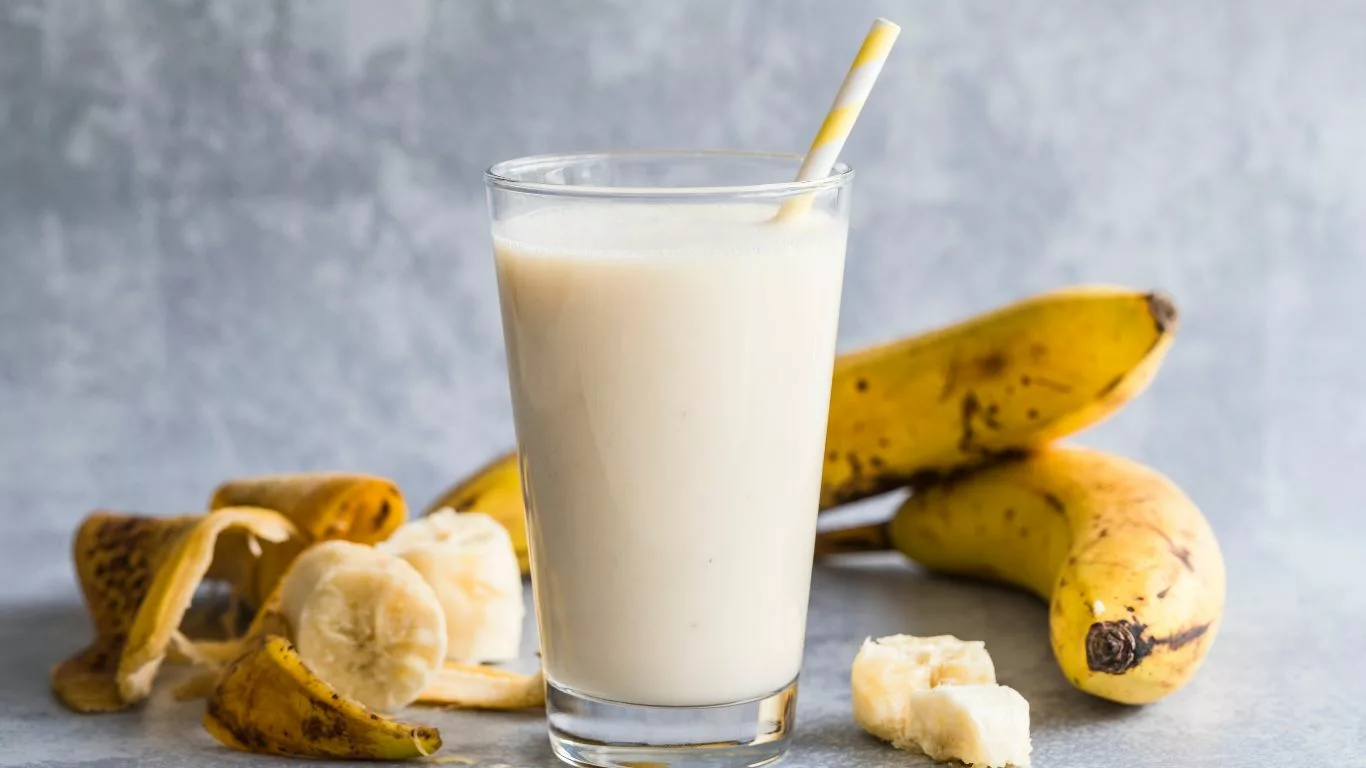
Meal Planning with Acid Reflux-Friendly Fruits
With a variety of acid reflux-friendly fruits to choose from, meal planning can become enjoyable and versatile. Here are some ideas for incorporating these fruits into your daily meals:
Breakfast Ideas
- Start your day with a nutritious breakfast smoothie made with banana, honeydew melon, and spinach for added nutrients. The smoothie provides a refreshing and hydrating way to kickstart your morning and supports proper digestion throughout the day.
- Top your oatmeal or yogurt with sliced ripe pears and a sprinkle of cinnamon for a flavorful and soothing breakfast option. The fiber-rich pears complement the creaminess of the oatmeal or yogurt, creating a balanced and satisfying meal.
Snack Options
- Grab a handful of sliced apples paired with almond butter for a satisfying and heartburn-friendly snack. The combination of the sweet and crisp apple with the creamy almond butter makes for a delicious and nutrient-packed treat.
- Enjoy a refreshing fruit salad with cantaloupe, watermelon, and papaya for a hydrating mid-day treat. The juicy and low-acidic fruits in this salad provide a burst of flavors and essential nutrients, making it a perfect snack for hot days or after physical activity.
Desserts and Sweet Treats
- Indulge in a guilt-free dessert by baking ripe bananas with a sprinkle of cinnamon for a delicious and natural sweetness. The warm and caramelized bananas create a satisfying dessert option without the need for added sugars or artificial ingredients.
- Create a papaya and pineapple sorbet using frozen fruit, blending them until smooth, and enjoying a cool and soothing dessert. The sorbet is a refreshing and tropical-inspired treat that satisfies sweet cravings while minimizing acidity.

Other Lifestyle Tips for Managing Acid Reflux
While incorporating acid reflux-friendly fruits into your diet is a step in the right direction, other lifestyle habits can further support your efforts to manage heartburn:
Eating Habits and Portion Control
Practice mindful eating, and avoid overeating, as large meals can put pressure on the stomach and increase the risk of acid reflux. Eat slowly, chew your food thoroughly, and try to have smaller, more frequent meals throughout the day.
Additionally, pay attention to portion sizes and avoid consuming large amounts of even acid reflux-friendly fruits in one sitting. Moderation is key to preventing discomfort and promoting better digestion.
Managing Stress and Sleep
Stress and inadequate sleep can contribute to digestive issues and worsen acid reflux symptoms. Practice stress-reducing techniques like meditation, yoga, or deep breathing exercises. Aim for 7-9 hours of quality sleep each night to support overall well-being.
Moreover, stress-reducing activities can help promote relaxation and reduce the likelihood of stress-induced heartburn. Prioritize self-care and find activities that bring joy and calmness to your daily routine.
Consulting a Healthcare Professional
If you experience persistent or severe acid reflux symptoms, it’s crucial to seek advice from a healthcare professional. They can provide personalized guidance, diagnose any underlying conditions, and recommend appropriate treatment options to manage acid reflux effectively.
A healthcare professional may suggest lifestyle modifications, prescribe medications, or conduct further tests to identify the cause of acid reflux symptoms. Early intervention and professional guidance can prevent complications and improve overall digestive health.

Conclusion
Choosing the right fruits can play a significant role in managing acid reflux and promoting better digestive health. Opt for low-acidity fruits such as bananas, melons, apples, pears, and papaya to soothe the digestive system and minimize heartburn risk. Remember to consider other lifestyle factors and consult a healthcare professional for personalized advice. With the right approach, you can enjoy a diverse and satisfying diet while effectively managing acid reflux symptoms.
References
- Sifrim, D., & Zerbib, F. (2018). Diagnosis and Management of Patients With Reflux Symptoms Refractory to Proton Pump Inhibitors. Gastroenterology, 154(2), 306–318. doi: 10.1053/j.gastro.2017.11.280
- Gyawali, C. P., Kahrilas, P. J., Savarino, E., Zerbib, F., Mion, F., Smout, A., Vaezi, M., Sifrim, D., Fox, M., Vela, M., Tutuian, R., Tack, J., Bredenoord, A. J., Pandolfino, J., Roman, S., & … International Working Group for Disorders of Gastrointestinal Motility and Function. (2018). Modern diagnosis of GERD: the Lyon Consensus. Gut, 67(7), 1351–1362. doi: 10.1136/gutjnl-2017-314722
- Granderath, F. A., Kamolz, T., Schweiger, U., Pointner, R., & Laparoscopic Antireflux Surgery Working Group. (2002). Laparoscopic antireflux surgery: a randomized trial comparing Nissen fundoplication and Toupet partial fundoplication. Annals of Surgery, 236(5), 684–692. doi: 10.1097/00000658-200211000-00013
- Watson, R. G., Tham, T. C. K., Johnston, B. T., McDougall, N. I., & Clarke, M. (1998). Double blind cross-over placebo controlled study of omeprazole in the treatment of patients with reflux symptoms and physiological levels of acid reflux—The “sensitive oesophagus”. Gut, 43(3), 325–330. doi: 10.1136/gut.43.3.325
- Kahrilas, P. J. (2008). Gastroesophageal reflux disease. New England Journal of Medicine, 359(16), 1700-1707. https://pubmed.ncbi.nlm.nih.gov/18923172/
FAQs
Q: Can I still enjoy fruits if I have acid reflux?
A: Yes, you can enjoy certain fruits that are considered acid reflux-friendly, such as bananas, melons, apples, pears, and papaya. These fruits are low in acidity and are less likely to trigger heartburn.
Q: Are all citrus fruits bad for acid reflux?
A: Citrus fruits, such as oranges and grapefruits, are highly acidic and can irritate the esophagus in some individuals. If you have acid reflux, it’s best to consume citrus fruits in moderation or avoid them if they trigger symptoms.
Q: How should I prepare fruits to reduce acid reflux risk?
A: Opt for ripe and fresh fruits, as they tend to be less acidic and easier to digest. Avoid fruit juices and concentrates, as they can be concentrated sources of sugar and acidity. Consider making low-acid smoothies using alkaline water or non-acidic bases like almond milk.
Disclaimer: The information provided in this article is for educational and informational purposes only and should not be considered as medical advice. If you have a medical condition, including acid reflux or any other digestive disorder, it is essential to consult a healthcare professional for personalized guidance and treatment. The authors and publisher of this article disclaim any liability for any adverse effects resulting directly or indirectly from the information provided.

Camellia Wulansari is a dedicated Medical Assistant at a local clinic and a passionate health writer at Healthusias.com. With years of hands-on experience in patient care and a deep interest in preventive medicine, she bridges the gap between clinical knowledge and accessible health information. Camellia specializes in writing about digestive health, chronic conditions like GERD and hypertension, respiratory issues, and autoimmune diseases, aiming to empower readers with practical, easy-to-understand insights. When she’s not assisting patients or writing, you’ll find her enjoying quiet mornings with coffee and a medical journal in hand—or jamming to her favorite metal band, Lamb of God.

